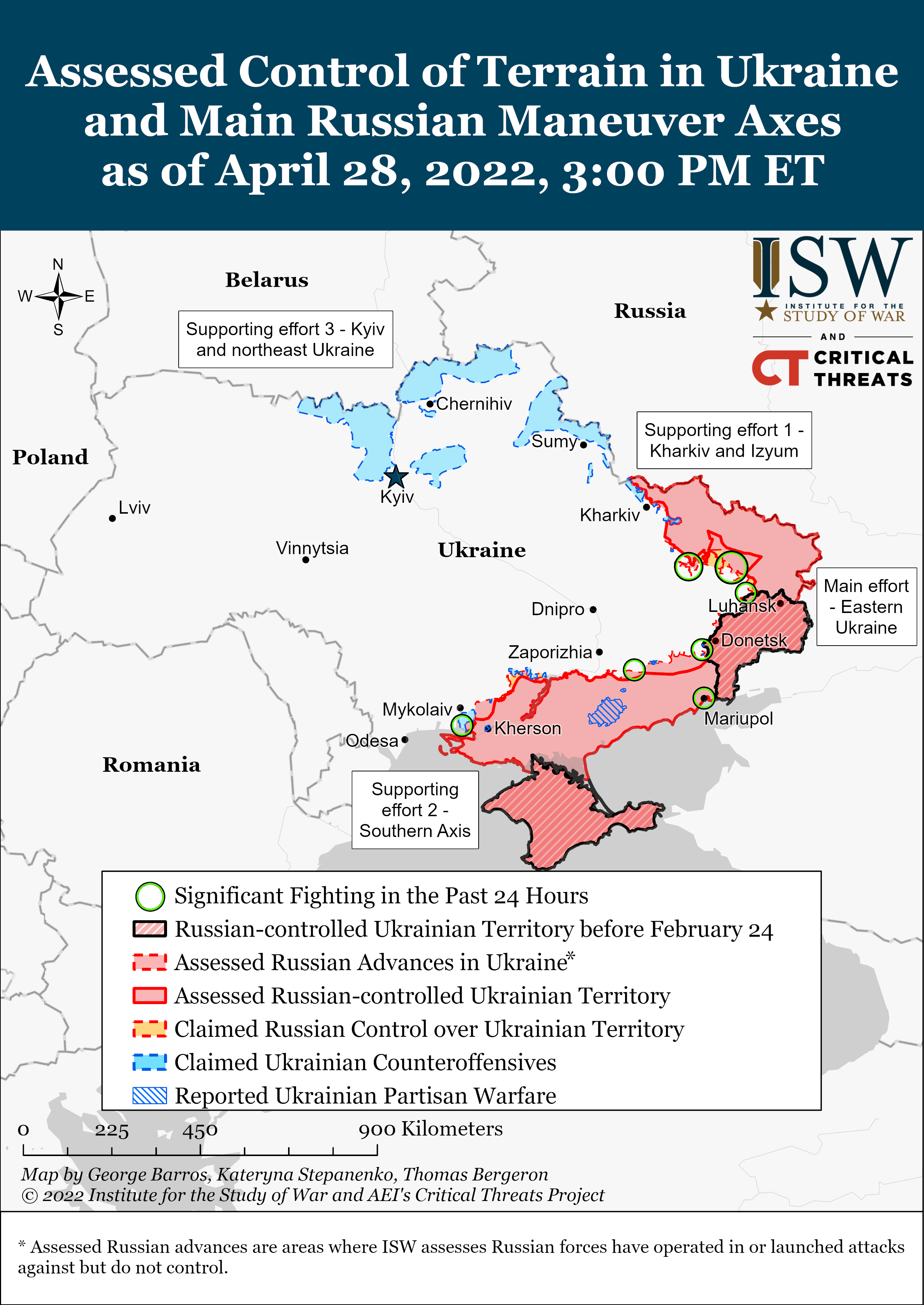*** MILITARY SITUATION ***
Russian offensive operations in eastern Ukraine made minor advances on April 28. Russian forces attacking southwest from Izyum likely seek to bypass Ukrainian defenses on the direct road to Slovyansk. Russian forces continued shelling and minor attacks along the line of contact in eastern Ukraine but did not secure any gains in the past 24 hours. Additional Russian reinforcements continue to deploy to Belgorod to support the Izyum advance. Ukrainian defenders in Mariupol’s Azovstal Steel Plant continue to hold out against heavy Russian artillery and aerial bombardment, including the likely use of multi-ton “bunker-buster” bombs against a Ukrainian field hospital.
Ukrainian news outlet Defense Express reported on April 27 that Russian Chief of the General Staff Valery Gerasimov will take personal command of the Russian offensive in the Izyum direction.[1] Citing unspecified Ukrainian military sources, Defense Express stated that Gerasimov is already in-theater and will command the offensive “at the operational and tactical level” and claimed the Russian military failed to create a single command structure under Southern Military District Commander Alexander Dvornikov. ISW cannot independently confirm this report. However, ISW previously assessed that Dvornikov’s appointment as overall commander in Ukraine would not solve Russia’s command and control challenges and likely strain his span of control.[2] If confirmed, the appointment of Russia’s senior general officer to command tactical operations indicates both the importance of the Izyum drive to Russia’s war in Ukraine and the breakdown in the Russian military’s normal chain of command.
-Russian strategic bombers likely targeted a Ukrainian field hospital in the Azovstal Steel Plant. The remaining Ukrainian defenders are likely running low on supplies.
-Russian attacks southwest of Izyum likely seek to outflank Ukrainian defenses on the direct road to Slovyansk and have made tactical gains in the last 24 hours.
-Russian forces continued tactical ground attacks and shelling along the entire line of contact in eastern Ukraine but did not secure any major advances.
-Donetsk People’s Republic (DNR) Head Denis Pushilin stated that the DNR will postpone local Victory Day celebrations planned for May 9 until “the complete victory and the expansion of the DNR" to control Donetsk Oblast, though the Kremlin remains likely to attempt to claim some sort of victory on May 9.
-Russian forces conducted several locally successful attacks from Kherson toward Mykolaiv.
-Russian and proxy forces continued to mobilize in Transnistria and set conditions for a false flag attack.
